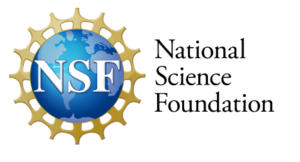Recommendations for Prospective IGE Awardees
In January 2023, an NSF-supported workshop hosted by Jackson State University and Morgan State University provided an opportunity to learn more about the process for submitting an IGE or NRT proposal to NSF. NSF Program Officers joined successful IGE and NRT grantees in sharing information about these programs and tips for preparing successful proposals.
Select presentations are available on YouTube, and high-level insights from presenters are featured here on the IGE Hub page.
This list is for informational purposes only. It serves as an overview of the NSF IGE Program and is not meant to be a comprehensive coverage of all the required components of an application. See the NSF-IGE solicitation for a complete overview.
NSF-IGE Program General Information:
This list is for informational purposes only. It serves as an overview of the NSF IGE Program and is not meant to be a comprehensive coverage of all the required components of an application. See the NSF-IGE solicitation for a complete overview.
- IGE Program goals are to pilot, text, and validate innovative approaches to graduate education; generate knowledge required to customize, implement, and encourage broader adoption of these approaches.
- Designing educational research questions are of utmost importance when considering applying.
- Proposal submission opens every March
- NSF anticipates between 6-10 awards each cycle with awards between $300,000–500,000 total
- The IGE program does not focus on comprehensive training of graduate students or research examining how graduate students learn.
Recommendations:
Every IGE proposal should include
-
- Include clear research questions
- Contain a hypothesis and a clear statement of the research methods used to answer the questions.
- Address the Merit Review Criteria and the solicitation-specific review criteria.
- Consider reaching out to a current or past grantee to ask their advice on preparing a successful proposal, especially if the research is related to the area where you are developing your own. Visit the IGE Hub project pages to learn more about project personnel.
- Involve your evaluator in the conception of the research proposal rather than waiting until the proposal is fully developed.
- Remember that most proposals are not funded the first time around. Use feedback from your reviewers to strengthen the proposal– just as you would with a scientific article submitted for peer review.
- IGE-NSF program officers can be available to meet virtually to offer feedback on forming and improving a proposal and proposal resubmission.
Contact Daniel Denecke, ddenecke@nsf.gov, Vinod Lohani, vlohani@nsf.gov, Karen McNeal, kmcneal@nsf.gov and Dorian Davis, ddavis@nsf.gov

